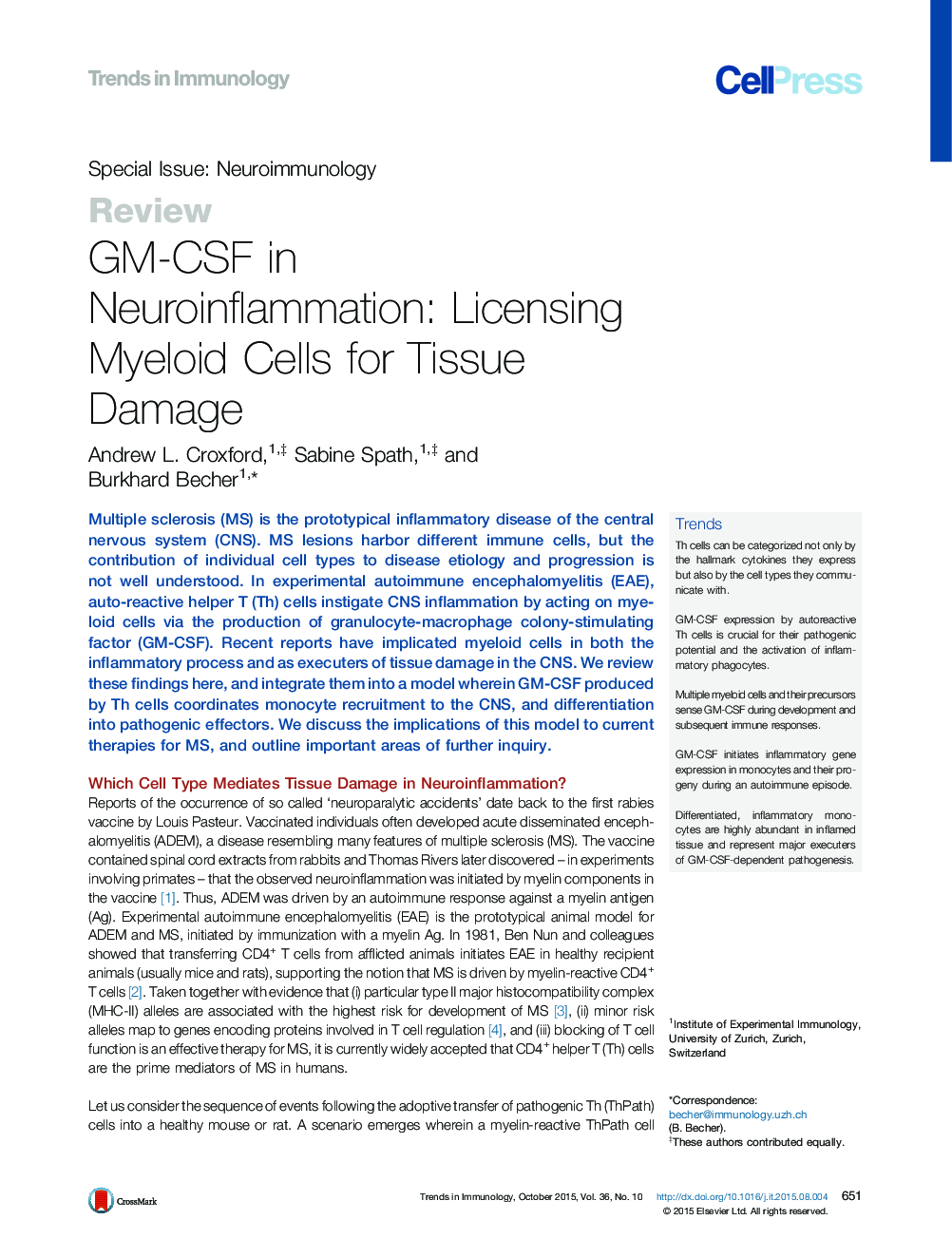| کد مقاله | کد نشریه | سال انتشار | مقاله انگلیسی | نسخه تمام متن |
|---|---|---|---|---|
| 4359744 | 1301100 | 2015 | 12 صفحه PDF | دانلود رایگان |

Multiple sclerosis (MS) is the prototypical inflammatory disease of the central nervous system (CNS). MS lesions harbor different immune cells, but the contribution of individual cell types to disease etiology and progression is not well understood. In experimental autoimmune encephalomyelitis (EAE), auto-reactive helper T (Th) cells instigate CNS inflammation by acting on myeloid cells via the production of granulocyte-macrophage colony-stimulating factor (GM-CSF). Recent reports have implicated myeloid cells in both the inflammatory process and as executers of tissue damage in the CNS. We review these findings here, and integrate them into a model wherein GM-CSF produced by Th cells coordinates monocyte recruitment to the CNS, and differentiation into pathogenic effectors. We discuss the implications of this model to current therapies for MS, and outline important areas of further inquiry.
TrendsTh cells can be categorized not only by the hallmark cytokines they express but also by the cell types they communicate with.GM-CSF expression by autoreactive Th cells is crucial for their pathogenic potential and the activation of inflammatory phagocytes.Multiple myeloid cells and their precursors sense GM-CSF during development and subsequent immune responses.GM-CSF initiates inflammatory gene expression in monocytes and their progeny during an autoimmune episode.Differentiated, inflammatory monocytes are highly abundant in inflamed tissue and represent major executers of GM-CSF-dependent pathogenesis.
Journal: - Volume 36, Issue 10, October 2015, Pages 651–662